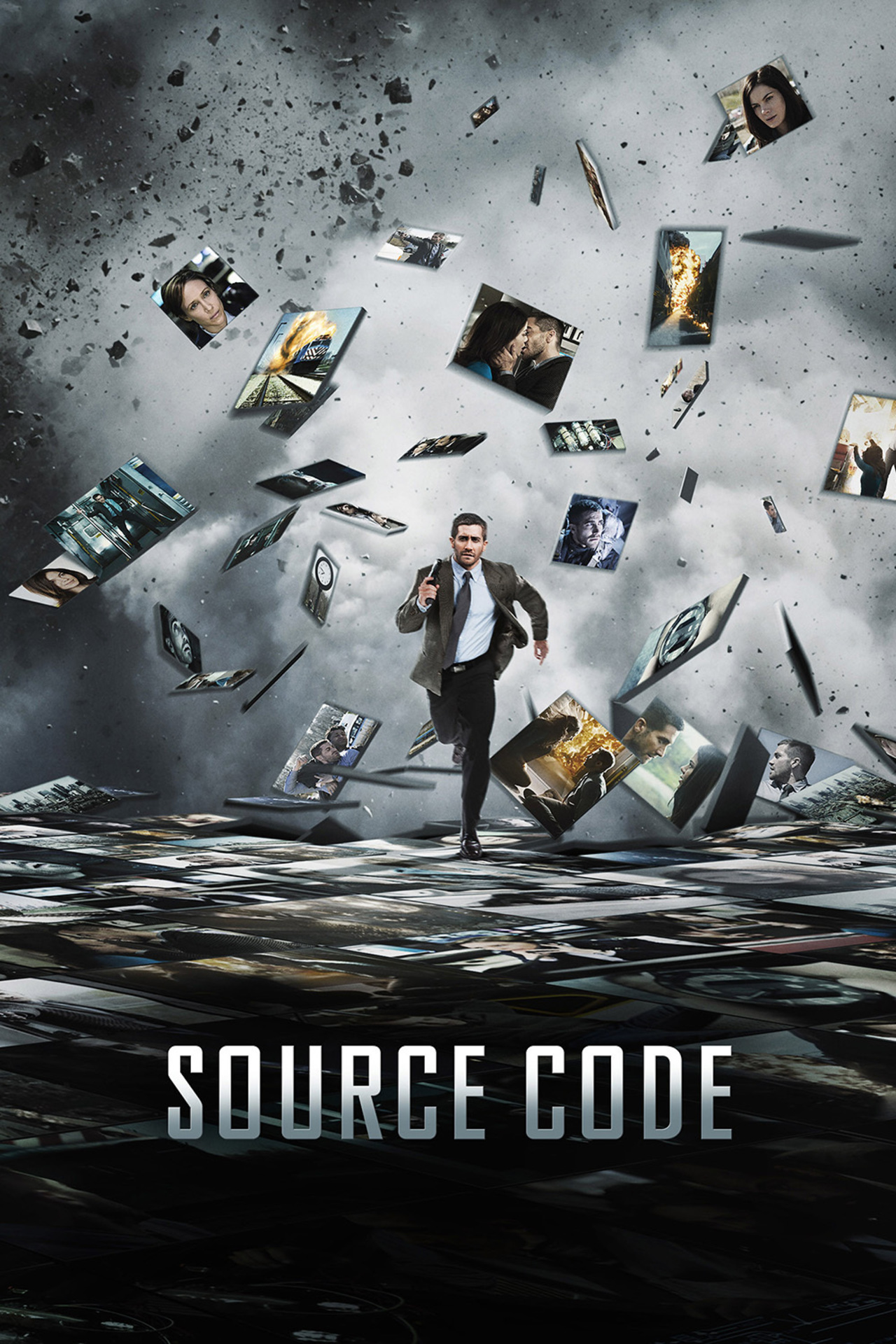A sci-fi Groundhog Day. Quantum Leap on repeat. There’s any number of ways to quickly synopsize Source Code, but they’re all too easy. Truth is, it stands on it’s own just fine– a completely riveting head-trip that will have you guessing until the credits roll (and probably a little ways after that, too).
Jake Gyllenhaal is US Army Captain Colter Stevens, and he’s just as lost as we are when things get going. He wakes up on a Chicago commuter train, sitting opposite a pretty, friendly young woman (Michelle Monaghan). She’s talking to him like they know each other. (Are they married? Dating? And why is she calling him Sean?) When he looks in the lavatory mirror, his face is not looking back at him, and his ID reveals he’s Sean Fentress, a local schoolteacher. Then, just to add to the confusion, a bomb destroys the train, killing everyone on board. When Captain Colter wakes up again– he’s in a dark, metal pod, even more confused than before.
Gradually, Captain Stevens learns that he is part of a the titular military experiment that allows him to re-enter another man’s life for its last eight minutes. His mission is to keep going back, over and over again, until he finds the bomb and identifies the bomber, thereby helping the authorities prevent a future, much larger bombing.
Confused? Good, you’re supposed to be. The genius of Source Code is that we have as many questions as Captain Stevens does. Every time he goes back in, he learns a little more, and we get the answers we need, too.
Director Duncan Jones (Moon) does a slam-bang job driving Source Code forward with a suspense level that gets ratcheted up each time our hero zaps back to the train for another go-round. While Groundhog Day gave Phil Connors entire days to make things right, Captain Colter only has eight minutes. The immediacy (and, frankly, the stakes) provide an added level of anxiety and tension, making Source Code a true edge-of-your-seat thriller.
The screenplay by Ben Ripley (the direct-to-video Species III) requires you to forgo all logic and accept the events as they come, and fortunately, that’s a relatively easy task. Early on, the designer of the project (Jeffrey Wright) explains, “This is not time travel. It’s time reassignment.” Whatever that means, it works. And kudos to Ripley for making the wise decision to keep Source Code free of anything superfluous—inane subplots, cheesiness, a global message, etc.
Don’t look now, but Gyllenhaal is very quietly becoming an A-list leading man, right up there with Clooney and Depp, both in talent and appeal. He carries Source Code with a seemingly-effortless, very charismatic performance.
Monaghan is also spot-on here as the very confused seat-mate. Her performance could have very easily gone over-the-top, but she reins it in, and the movie is that much better for it. High marks also go to Wright and also to Vera Farmiga as Captain Colter’s cool and calm link to the real world.
In the end, we’re still left wondering exactly what happened (several different conversations were well underway as the theater emptied), and even though the finale felt a little too Hollywood for its own good, you won’t leave feeling short-changed.
One last note—as a nod to his apparent inspiration, Jones called on Quantum Leap’s Scott Bakula for a cameo as the voice of Captain Stevens’ dad. Keep an ear out, it’s a nice touch.
4/5 stars
